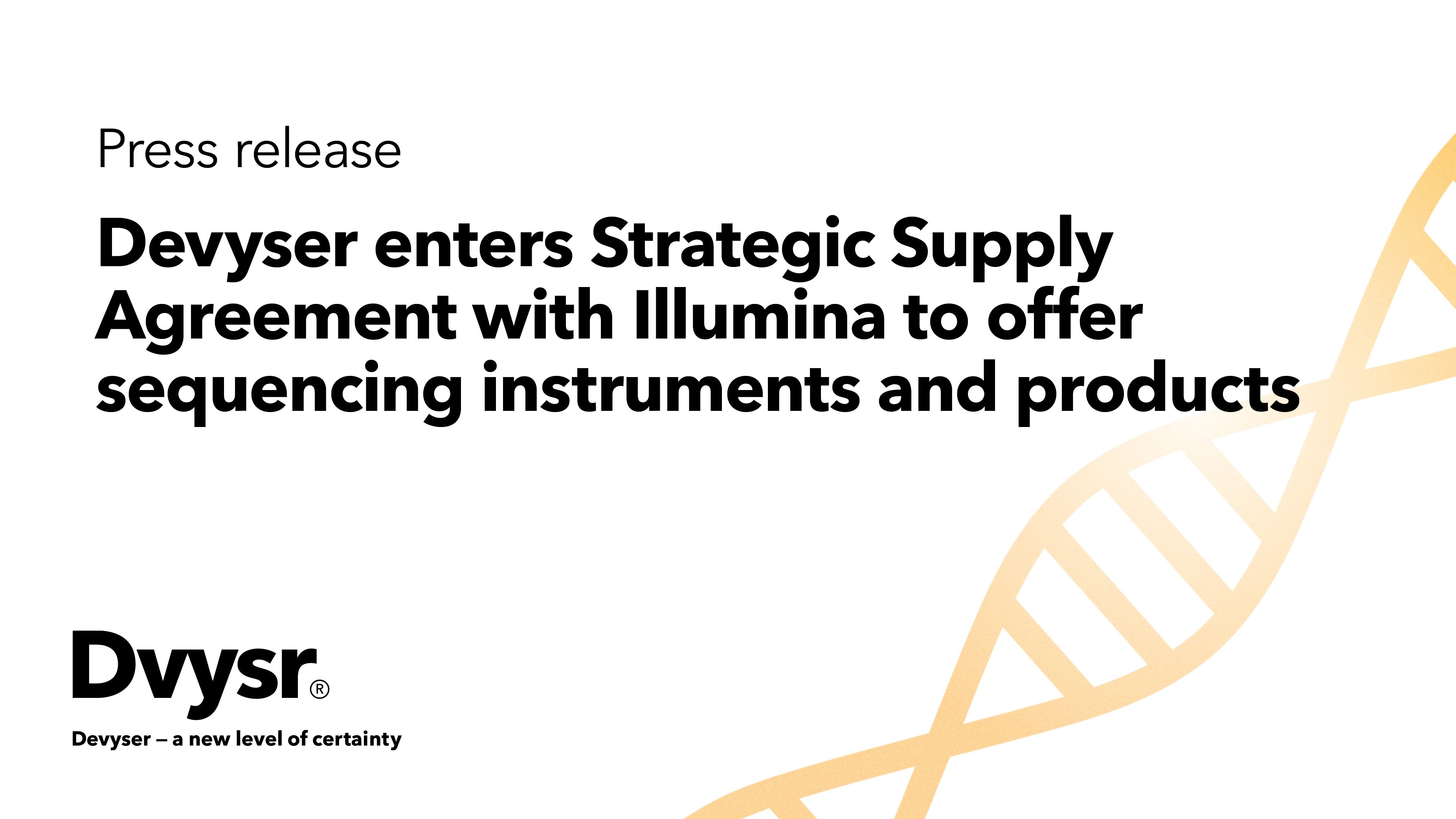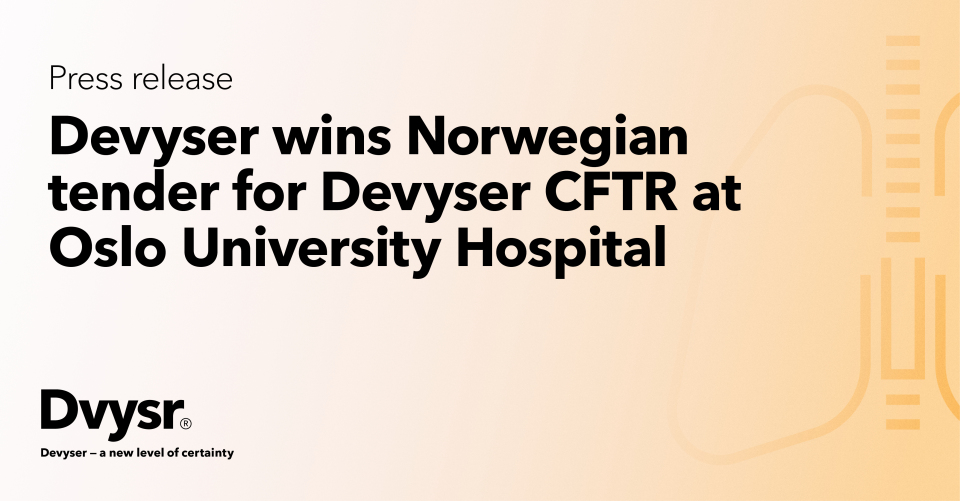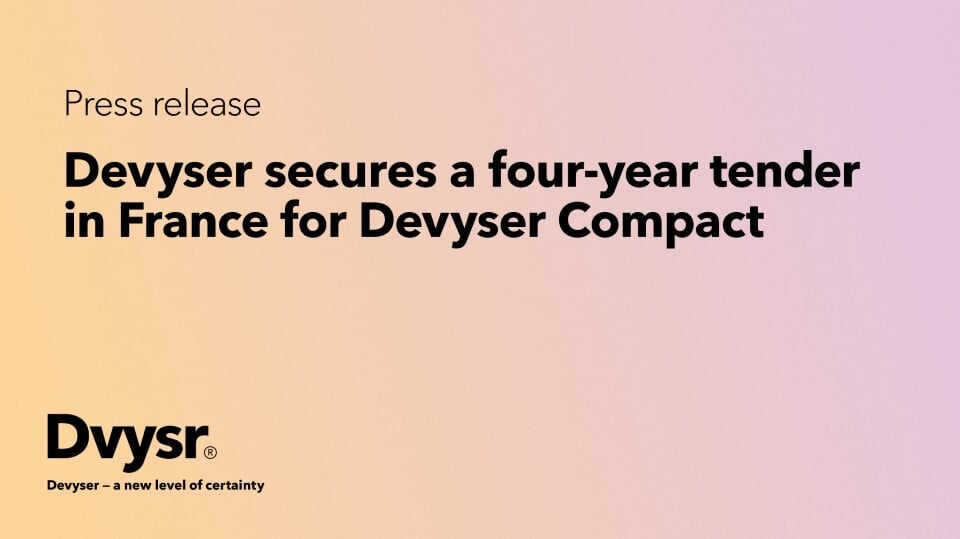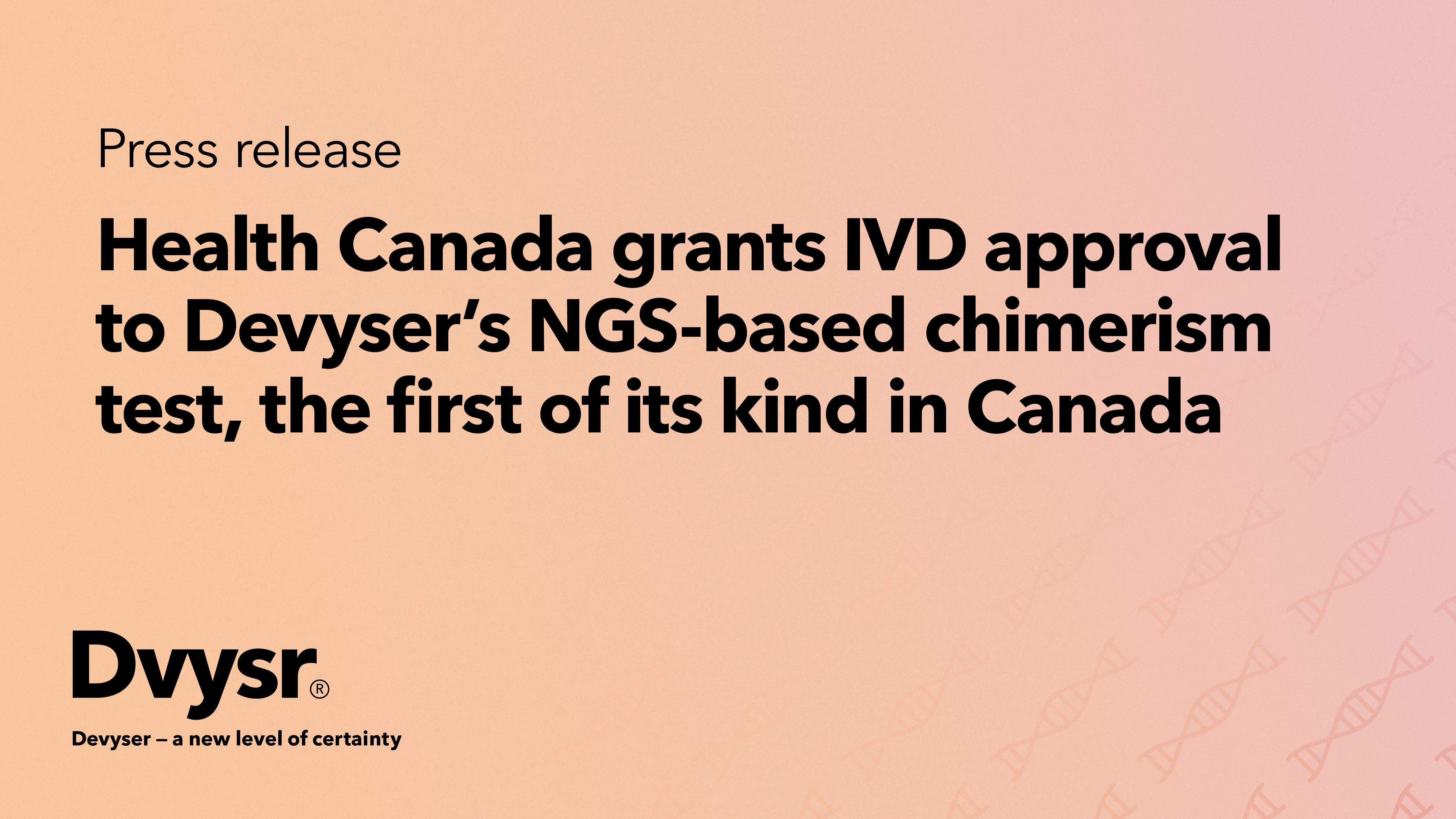Devyser enters Strategic Supply Agreement with Illumina to offer sequencing instruments and products
Devyser today announced that it entered a strategic agreement with Illumina, a global leader in DNA...
Cystic fibrosis
-2.png)
Cystic fibrosis | July 14, 2023
The American College of Medical Genetics and Genomics (ACMG) has released an updated position statement regarding carrier screening for cystic fibrosis (CF), a life-threatening genetic disorder affecting the lungs and other organs which affects over 160,000 people globally. Only an estimated 65% of these have been diagnosed. CF is caused by genetic variants in the CFTR (Cystic Fibrosis Transmembrane Conductance Regulator) gene.
ACMG previously established a minimum variant set of 23 pathogenic variants for pan-ethnic carrier screening. This set, known as ACMG-23, has remained unchanged despite advances in molecular diagnostics and genetic knowledge. The new recommendations significantly expand the number of variants included from 23 to 100, with the aim of more comprehensively CFTR screening.
Read the full update below.
The initial guidelines for CF carrier screening were limited to specific populations and utilized targeted testing approaches due to technological constraints. However, with advancements in NGS technology and variant classification, there is now an opportunity to expand the screening approach.
This expansion also aims to include a more equitable approach to CFTR genetic screening. The previous recommendation, ACMG-23, was largely based on Northern European and Ashkenazi Jewish sequencing data. Therefore, the guidelines could not be extrapolated to other populations with varied biographic ancestries with similar success. For the current update, data has been taken from the Genome Aggregation Database (gnomAD), which is the most comprehensive public database of sequence-resolved structural variants. This database includes information from 14,891 genomes and a diverse population biographic than previously used for the ACMG-23 variant recommendations.
The revised guidelines also highlight three databases considered for CFTR variant pathogenicity: ClinVar, CFTR-France, and CFTR2. ClinVar is a public archive of genetic variants and associated phenotypes, while CFTR-France and CFTR2 are databases that provide information on CFTR variants and associated phenotypes.
Ultimately, the workgroup involved in updating the guidelines decided to use CFTR2 as the source for CF-causing variant pathogenicity. This decision was based on the availability of comprehensive phenotype and genotype information from a diverse population. Other databases were not extensively pursued due to barriers to access, varying curation quality, and potential biases toward specific populations.
A significant challenge lies in ensuring equity in variant detection across all races, ethnicities, and ancestries. Self-reported ethnicity has limitations, and the aim is to develop a screening approach that is not subject to bias.
The availability of cost-effective DNA sequencing and standardized variant classification has led to the possibility of offering an expanded CFTR variant set for carrier screening. In response, ACMG published updated technical standards that allowed laboratories to use targeted or comprehensive sequencing methods.
Overall, the aim of the updated guidelines is to improve CF carrier screening by incorporating a more diverse set of CFTR variants and utilizing comprehensive databases for variant classification.
References:
Deignan, Joshua L., et al. "Updated recommendations for CFTR carrier screening: A position statement of the American College of Medical Genetics and Genomics (ACMG)." Genetics in Medicine (2023): 100867.
Disclaimer:
Products mentioned here are CE-IVD marked but not FDA-cleared. Availability in each country depends on local regulatory marketing authorization status. Please consult your local sales representative for details.

Devyser today announced that it entered a strategic agreement with Illumina, a global leader in DNA...
Read More

Devyser is proud to announce that the company has been awarded a tender by Oslo University Hospital...
Read More

Devyser, a leading provider of advanced genetic testing solutions, has been awarded a new tender in...
Read More

Devyser is proud to announce that One Lambda Devyser Chimerism and Advyser Chimerism have been...
Read More